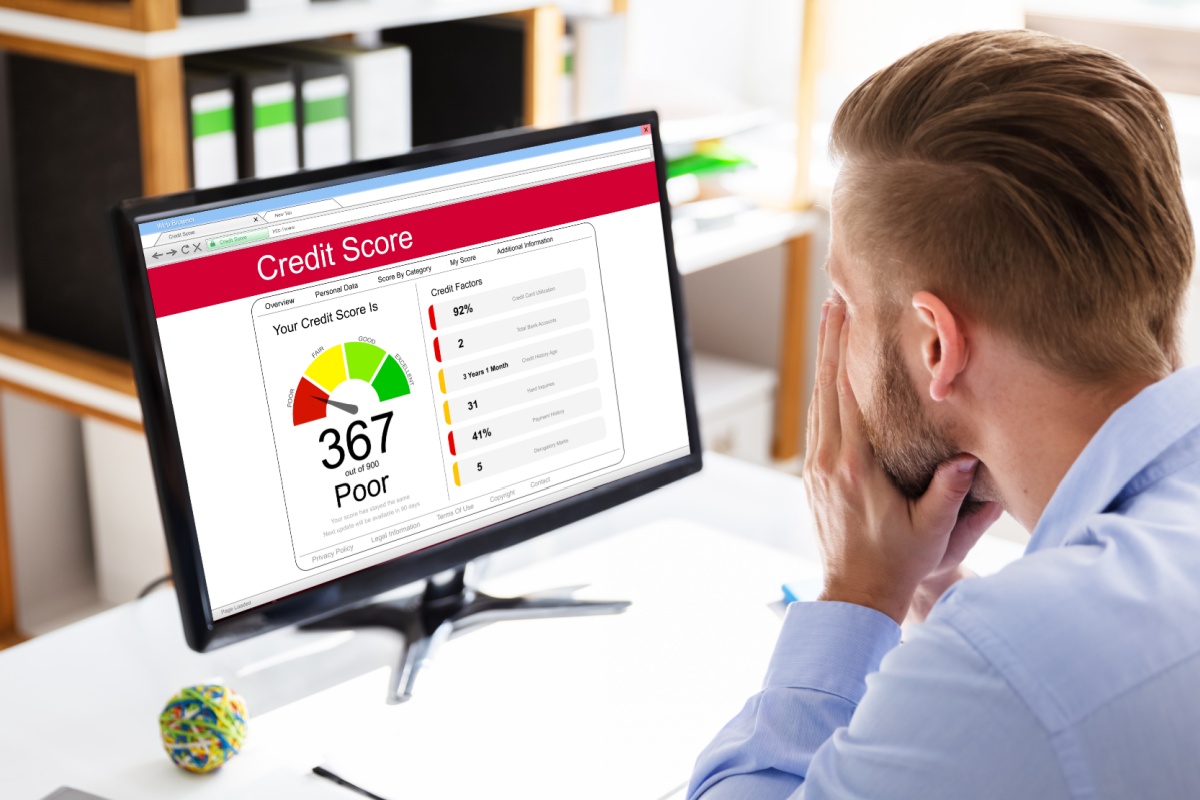
What Affects Your Credit Score?
Your credit score influences your ability to borrow money, find housing, and even get a job. Yet, many people don’t fully understand what causes a score to go up or down.
In this guide from Utah Title Loans, Inc., we will explain what factors can impact your credit score. We will discuss common mistakes that can lower your score and how to recover with smart financial choices. The article will also cover how you can obtain emergency loans, like title loans, even if you have bad credit.
What Affects Your Credit Score: 5 Factors To Look Out For
According to a study by FICO, about 16% of Americans have a poor credit score, ranging from 300 to 599. Many readers might be in the same situation but not understand what affects credit scores. You may believe you're making smart financial choices, but still struggle to maintain a credit score in the average to good range.
Below, learn what impacts your credit score and how to boost it:

1. Payment History
The most important factor influencing your credit score is payment history. According to FICO, payment history makes up 35% of your credit score, making on-time payments the most critical factor in maintaining good credit.
Your payment history will take into account whether you make payments on time for your rent, mortgage, credit cards, car loans, student loans, etc. If you consistently make your payments on time, you should have a good payment history.
However, failing to make a payment for 30 days after the due date can cause your score to drop. Establishing a history of missed payments like this can tank your score.
The following is how late payments can affect your credit score:
- Creditors may report late payments to the major credit bureaus
- Late payments can stay on your record for 7 years
- Missed payments can cause your score to drop by 50+ points
2. Credit Utilization Ratio
Your credit utilization ratio accounts for 30% of your credit score. It weighs how much debt you have and how much of your available credit you’re using. Many financial experts suggest keeping your credit utilization ratio below 30% to improve your credit score.
For example, let’s say you have $3,000 worth of credit available every month. To avoid penalties for high credit utilization, you must use less than $900 of that available credit. That is 30% of $3,000. Spending less than $900 will keep you in an acceptable credit utilization ratio range.
Also, be sure to repay what you owe to avoid creating a negative payment history.
3. Length Of Credit History
The length of your credit history accounts for 15% of your credit score. The longer you have your credit account open, the better off you are. This is only for accounts with a good payment history. For example, if you’ve made every payment on a student loan you’ve been paying for eight years, that can improve your score better than an account you’ve only been paying for two years.
Establishing a long, positive credit history for an account can have such a positive impact that you should keep accounts open even if you finish paying off the loan. In fact, closing a credit account after repaying the loan can actually lower your credit score.
4. Credit Mix
Accounting for 10% of your credit score, a credit mix is how many different credit accounts you have. While you may think having just one or two credit accounts that you pay on time is best for your credit score, you can actually limit how high your credit score can climb. It's best to have at least three different types of credit accounts for a healthy credit mix.
Here are some of the credit accounts you can have open for a healthy credit mix:
- Home or car loan
- Student loans
- Credit card debt
- Installment loans
5. New Credit
Your new credit accounts will make up 10% of your credit score. This not only considers what new credit you have but also when you accumulate this new credit. Opening multiple new credit accounts within a few weeks of each other can have a negative impact on your credit score.
As you open new credit accounts, you also may open yourself up to hard and soft inquiries. A hard credit inquiry from a traditional banking institution when applying for new credit can lower your score. However, a soft inquiry for checking the score or pre-approvals will not affect it. Keep that in mind when shopping around for the best rates from banks and credit card companies.
How Can You Improve Your Credit Score?
If your credit score is affecting your ability to qualify for a house or bank loan, it’s best to start making changes to improve your score. However, these changes won’t happen overnight. You'll need to continue making smart financial decisions for three to six months to see progress. Luckily, our tips for increasing your credit score are easy to follow and can be repeated as long as your finances remain stable.
Here are a few tips for how to improve your credit score:
- Make payments on time
- Notify creditors if you will miss a payment to get a grace period
- Don’t take on a lot of new debt at once
- Keep healthy credit accounts open after they’ve been repaid
- Avoid high-interest-rate debt
- Use less than 30% of available debt
- Create a diverse mix of credit accounts
- Dispute credit report errors
Improving your score mostly involves looking out for credit score mistakes to avoid. It seems simple, but just making payments on time can help immensely.
However, some mistakes may be beyond your control, such as errors in your credit score reported by creditors. Human error can always occur, and a creditor may forget to report a payment or mislabel the amount paid. If you notice an error, you can dispute it by gathering proof of the error and sending the documents to the credit reporting company along with a dispute letter explaining the issue.
Can You Get A Loan With Bad Credit?
While you work to improve your credit score, a financial emergency may arise. You may have to pay for medical bills, auto repairs, or unexpected travel costs that you cannot afford. Without a good credit score, you likely won’t get approved for a bank loan.
However, you can get emergency financing help from Utah Title Loans, Inc. with our title loans. You can offer up your lien-free vehicle title as collateral to get approved, as long as you have fully paid off your vehicle. You can borrow up to $15,000 based on the value of your vehicle.
Here are all the required items you will need to get approved:
- A state-issued photo ID that displays your full name and age
- A lien-free vehicle title in your name
- Your vehicle for an inspection
You can use your car title as collateral, so there’s no need to prove your creditworthiness. We may perform a soft credit check, but approval doesn’t depend on a good credit score. You can get approved today by filling out our online form, bringing the required items to your nearest Utah store location, and signing a loan agreement. This allows you to get approved and receive your funds within a business day.

Get A Title Loan For Bad Credit In Utah – Receive Up To $15,000 Today!
When you need emergency cash with bad credit, Utah Title Loans, Inc. can help. Our title loans are available to borrowers of all credit types. You can get approved today for same-day cash and keep your vehicle.
Ready to get started? Submit your information through our online title loan form, and we will walk you through how to get approved in person in less than 30 minutes!
Note: The content provided in this article is only for informational purposes, and you should contact your financial advisor about your specific financial situation.